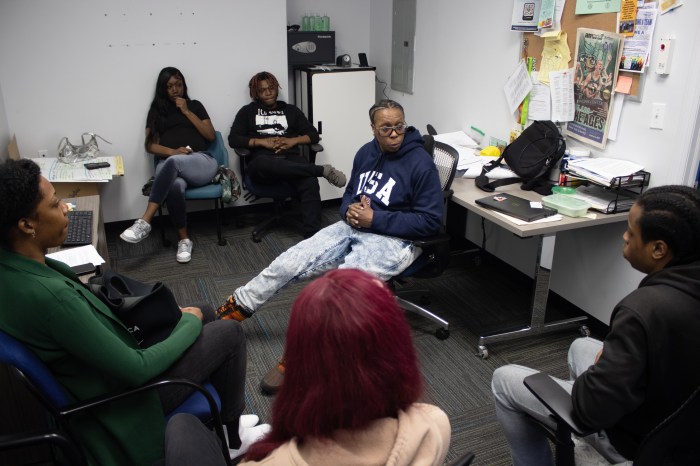A new $1.5 million city initiative will help young adults entering the workforce to navigate job-related issues, as well as personal problems, that could impact their future careers.
The CareerLift initiative, slated for announcement Tuesday, will rely on two workforce development nonprofits — Seedco and Madison Strategies Group — to provide “navigators” to confidentially advise new employees in the food and office service industries. “Navigators” will address everything from handling disagreements with supervisors to acquiring an emergency loan when their car breaks down.
CareerLift will help young adults with limited education and work experience acclimate to entry-level jobs and identify opportunities to advance their careers, according to David Fischer, executive director of the NYC Center for Youth Employment, the public-private partnership behind the initiative.
CareerLift is funded, in part, by an $850,000 grant from The Rockefeller Foundation and a $150,000 grant from The Pinkerton Foundation. The pilot program is expected to assist 275 people by the end of 2018.
“All sorts of things might arise fairly soon after you’re hired that lead to you losing that job, whether it’s a conflict with a supervisor, or just sort of not understanding the expectations of an employer, or something that has nothing to do with work like a problem with transportation or day care or a health issue or a housing issue,” Fischer said. “So CareerLift is essentially a way to try to put supports in place.”
The NYC Center for Youth Employment is now working with Seedco to expand its practice of having multiple caseworkers fulfill “navigator” duties for workers at food service companies like Dig Inn and Nagle’s Bagels, Fischer said. Beginning in February, the center envisions Madison Strategies Group placing one navigator at Q Services, which offers cleaning, maintenance and office administration services.
During 2018, the center and its partners will assess how much CareerLift assists workers and helps Q Services and the food service companies retain workers. If successful, Fischer said the center will devise a way for benefiting companies to financially support CareerLift.
“Particularly in low-wage industries, you have really high turnover rates, and these employers wind up spending a lot of money to refill these positions,” he said. “We’re working with an organization called Social Finance, which explores what we call pay-for-success funding structures, to try to figure out what this really is worth for employers and at least hypothesize about a rate structure.”


































